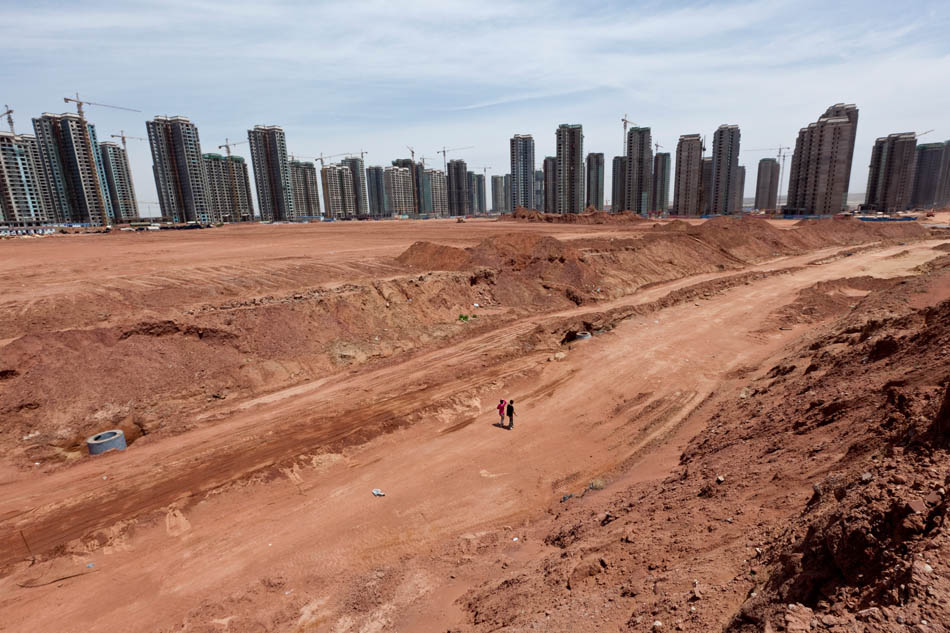
China’s Empty Metropolis
“It doesn’t if it’s a white cat or a black cat, it’s a good cat if it catches mice.” With these words, in 1962 Deng Xiaoping proclaimed China’s new approach to revamping its feeble economy. Forty years on, this dictum which strikes at the heart of the Chinese property bubble in an economy which remains one of the most powerful on the planet
This year, Miss World competitors will flock to the city with the second highest per capita income in China. Unfortunately, there will be barely any residents to greet them. Such incongruities have come to characterise Ordos, the infamous ‘ghost town’ of Inner Mongolia. The city built for one million residents has only 30,000 inhabitants; despite the sale of almost every house, only 3% are occupied. Overcrowded and slightly dilapidated, the original old town of Ordos lies fifteen miles away from the vast squares ad colossal equine statues to be found in the new city centre. New Ordos is spookily uninhabited with its silent rows of deserted middle-class homes, colossal state buildings, and enormous supermarkets filled with gaudily packaged foodstuffs. Walking through the city, there is a strange, post-apocalyptic atmosphere.
Ordos is symptomatic of the current state of the Chinese property market. Speculators, seeking financial gain rather than new housing, have been pouring money into property. At the same time, the government has been trying desperately to comply with CCP policy, which demands an annual rise of 8% in GDP. The potent mix of speculative investment and government spending has resulted in ‘ghost towns’ like Ordos springing up across China. Scattered from Inner Mongolia in the North-West to Jiangsu on the South-Easter coats, they encapsulate much of what is wrong with the Chinese economy.
Property investment of this type has fundamentally failed to address China’s problems. Housing has been built to satisfy speculative investors looking to diversify their wealth, not to meet the needs of the 700 million poor in China. Neither is it build with local residents in mind; the only plausible buys of such property are the wealthy middle-class looking to settle in a second or third home. Built on a barren desert, Ordos lacks this kind of demand. High levels of speculative demand, however, have priced locals out of the market.
There is a prevailing impression that the current situation has arisen thanks to buccaneer private investors and their unwarranted speculating, a stance not dissimilar to the demonisation of Wall Street bankers in the West. However, directing these sorts of criticisms at Chinese property investors seems rather less justified.
One prominent property developer points towards the recent fall in property prices as a result of combatant government policies which increasingly restrict private investment. And investors are certainly feeling the pinch. Yet while he sees a punishing ‘five or six years’ ahead for his business, his stoic attitude is somewhat unexpected. He seems convinced that “this [government] policy will work,” adding, “it is good that house prices drop so everyone in China can afford a house.”
The ghost towns in China were a result of both economic stimulus and attempts at mass urbanisation which temporarily provoked an artificial sense of prosperity. Once funds for development were exhausted, the government spending, which had been bolstering GDP in the area, was was not replaced by business generated income, local industry or infrastructure. The key to China’s economic future lies in the creation of such industry. The question is, will the cat get its cream?
Photo by Matthew Niederhauser.







